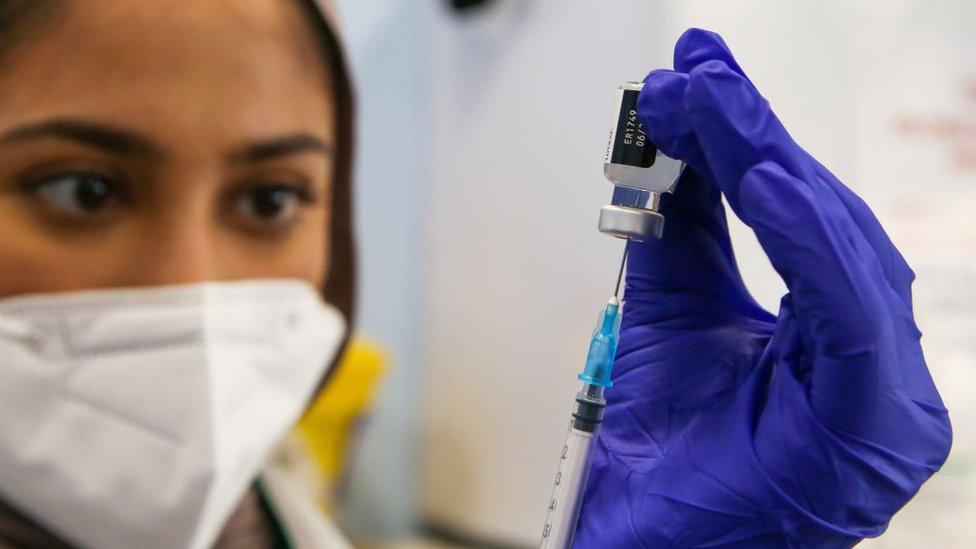Covid-19: Vaccine offered to 42-year-olds in England
- Published
- comments
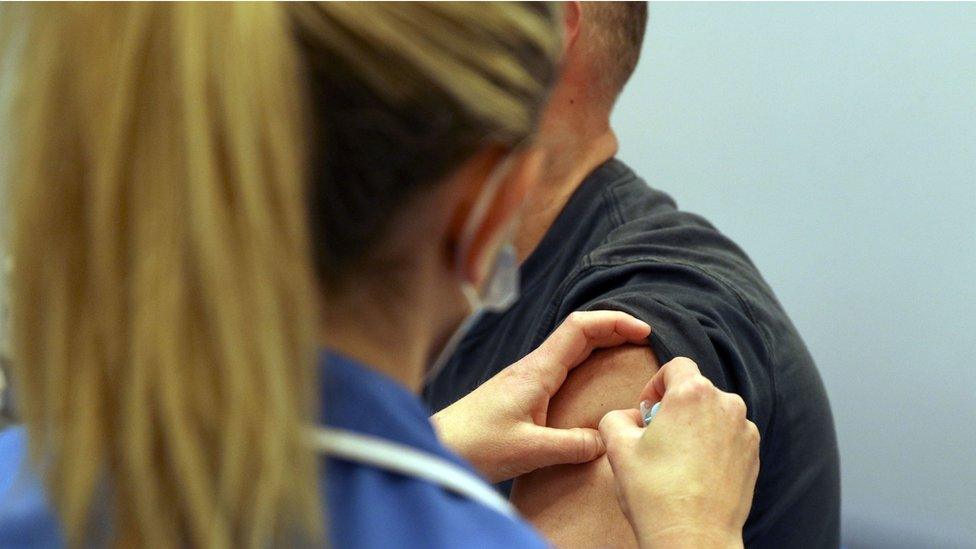
People aged 42 and over in England are now able to book their Covid-19 jab, external, the health secretary has said.
Those who are due to turn 42 by 1 July are also eligible to make an appointment under the latest extension of the vaccine rollout.
Matt Hancock, who is 42, said he was "really looking forward" to receiving his invitation via text and urged others to book their jabs.
Meanwhile, one in four UK adults have now had both of their Covid jabs.
More than 33.8 million people in the UK have received their first dose, while more than 13.2 million have received two, according to the latest government figures, external.
They also show that a further 17 people have died within 28 days of a positive coronavirus test and 2,685 new cases were recorded.
The extension of the rollout comes just a day after vaccinations were opened to 44-year-olds in England.
In a video posted on Twitter, external, Mr Hancock said that rollout had gone "very, very well" and thanked those who had booked their jabs.
"Now we're able to go that little bit further," he said.
NHS medical director Prof Stephen Powis added the success of the rollout "hasn't happened by accident".
"It is down to months of careful planning and sheer hard work by nurses, doctors and countless other staff supported by our volunteers," he said.
Northern Ireland has opened its vaccination programme to people aged 35 to 39. Wales, meanwhile, has been inviting over-40s for vaccination, as well as over-30s in some areas. Scotland has been inviting the over-45s for vaccination.
Across the UK, there have now been 152,205 deaths where Covid-19 was mentioned on the death certificate, according to the Office for National Statistics.
The highest number of deaths to occur on a single day was 1,477 on 19 January, the ONS added.
However, it also said deaths involving Covid-19 in England and Wales have fallen by 97% since the peak of the second wave of the virus.
A total of 266 deaths occurred in the week ending 9 April where Covid-19 was recorded on the death certificate - this is down 97% from 8,965 deaths in the week to 22 January.
Another set of figures produced by the government, which measure deaths within 28 days of a positive coronavirus test result, show 127,434 Covid-19 deaths since the start of the pandemic, after a further 6 were reported on Monday.
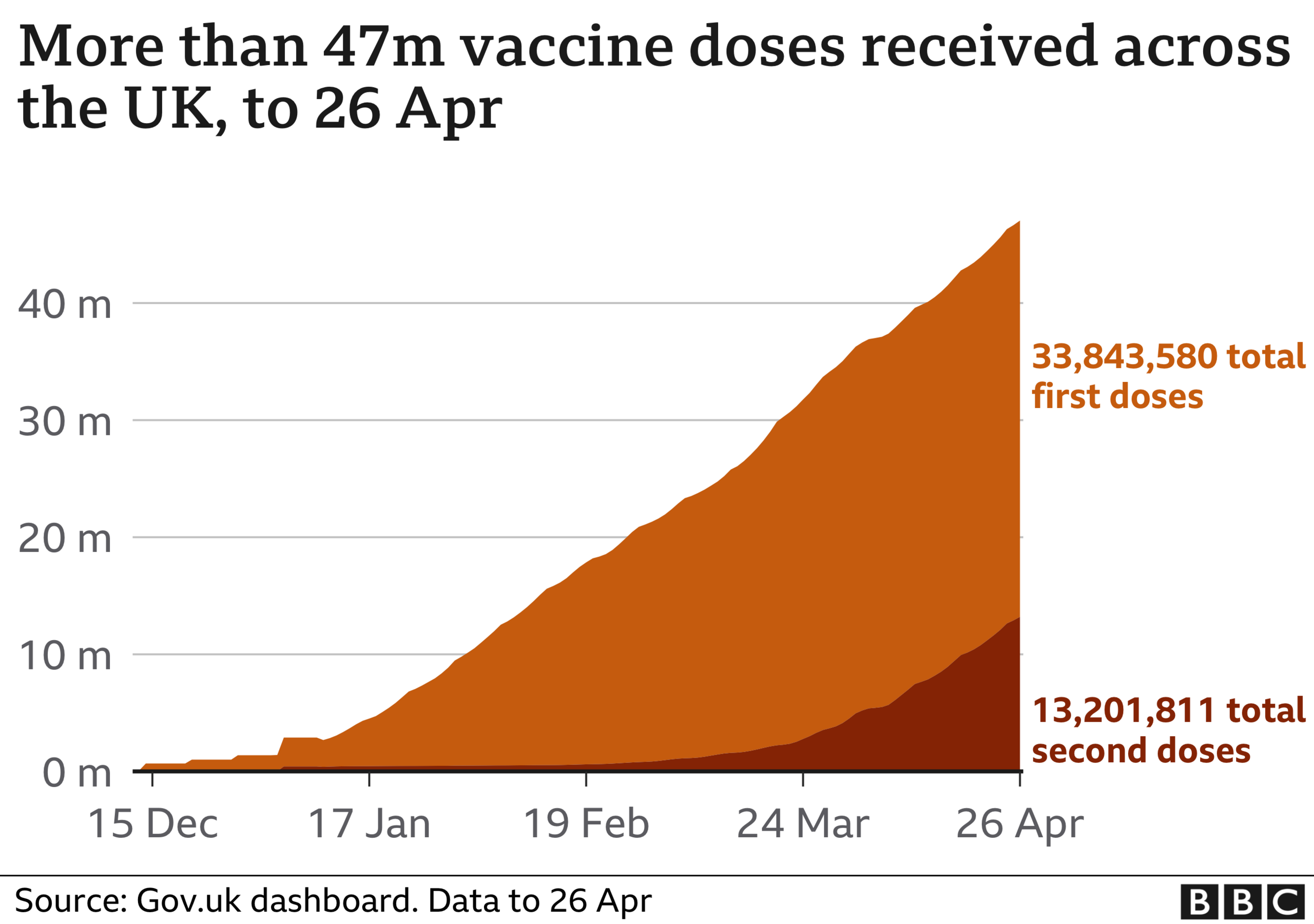
At Tuesday's cabinet meeting, the PM "re-iterated that the data continues to look good but warned that we are not out of the woods yet as variants of concern continue to pose a threat", a No 10 statement said.
The statement continued: "The PM said that while the road ahead looks positive, there will still be challenges and this government will continue to take tough decisions where necessary to protect both lives and livelihoods."
Concern over fines
While England's vaccine rollout continues to draw praise, its approach towards the policing of Covid lockdown breaches has been criticised as "muddled, discriminatory and unfair" by a parliamentary committee.
MPs on the Joint Committee on Human Rights want a review of all the fixed penalty notices served for lockdown breaches, which can be as high as £10,000.
The JCHR, which is made up of MPs and peers, said it had "significant concerns" about the validity of fines, the inadequacy of the review and appeal process, the size of the penalties and the criminalisation of those who could not afford to pay.
"The whole process disproportionately hits the less well-off and criminalises the poor over the better off," said the committee chairwoman, Labour MP Harriet Harman.
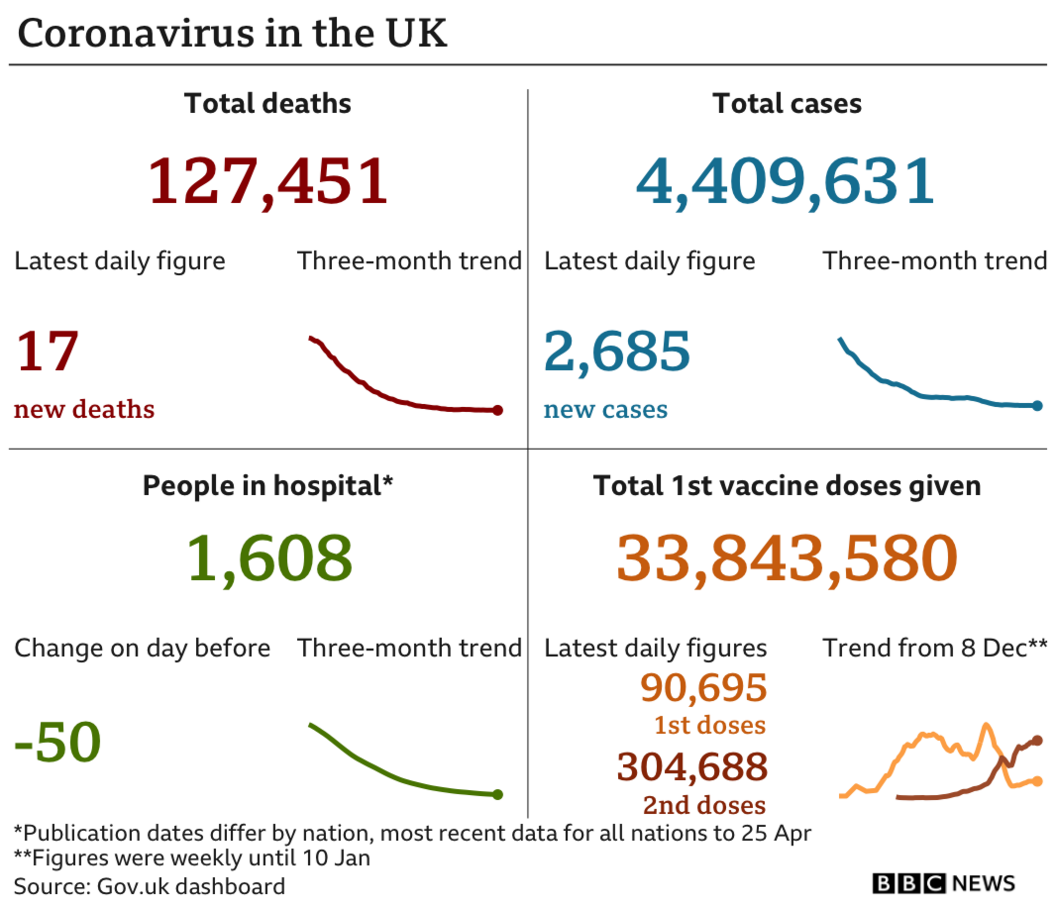
According to the report, coronavirus rules have changed at least 65 times since March 2020.
"It is possible to tell from penalties that have not been paid and have then progressed through the system towards a prosecution, that a significant number of FPNs are incorrectly issued," the committee said.
A government spokesperson said it was right there were consequences for those who most flagrantly breached the rules.

NEW VARIANTS: How worried should we be?
GLOBAL SPREAD: How many worldwide cases are there?
COVID IMMUNITY: Can you catch it twice?
VACCINE: When will I get the jab?

Elsewhere, medical supplies from the UK arrived in India, the first international shipment aimed at stemming a devastating Covid surge.
India recorded 320,000 new infections on Tuesday, and deaths have risen to almost 200,000 overall.
The UK shipment of 200 pieces, including ventilators and oxygen concentrators, to help hospitals manage oxygen supplies was unloaded at Delhi airport on Tuesday.
However, asked if surplus vaccines would be sent to India, the PM's spokesman said: "We don't have surplus doses."
The spokesman added: "We committed in February to sending excess doses from the UK's supply to the Covax procurement pool and to countries in need once they are available."

How has coronavirus affected you? Do you have any questions about the vaccine rollout? Email haveyoursay@bbc.co.uk, external.
Please include a contact number if you are willing to speak to a BBC journalist. You can also get in touch in the following ways:
WhatsApp: +44 7756 165803
Tweet: @BBC_HaveYourSay, external
Please read our terms & conditions and privacy policy

Related topics
- Published26 April 2021
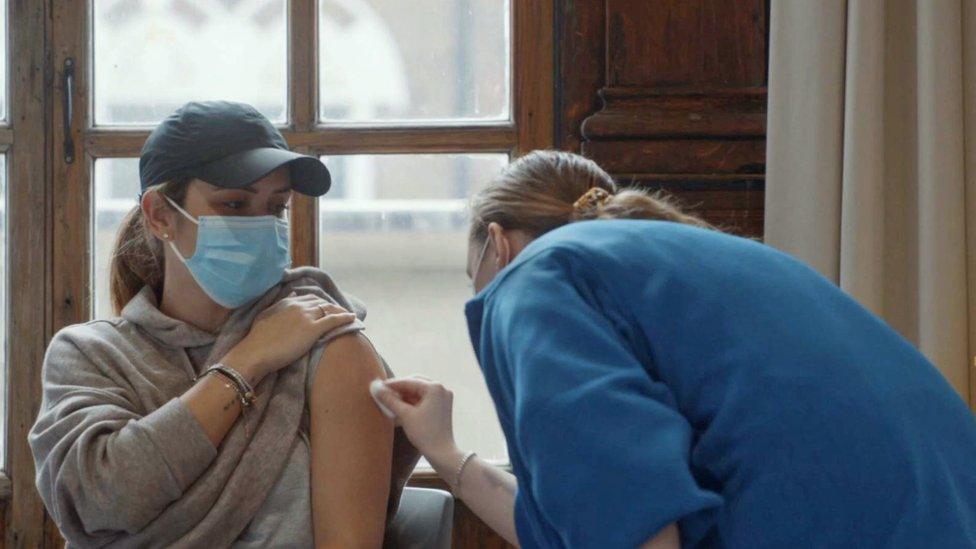
- Published25 April 2021
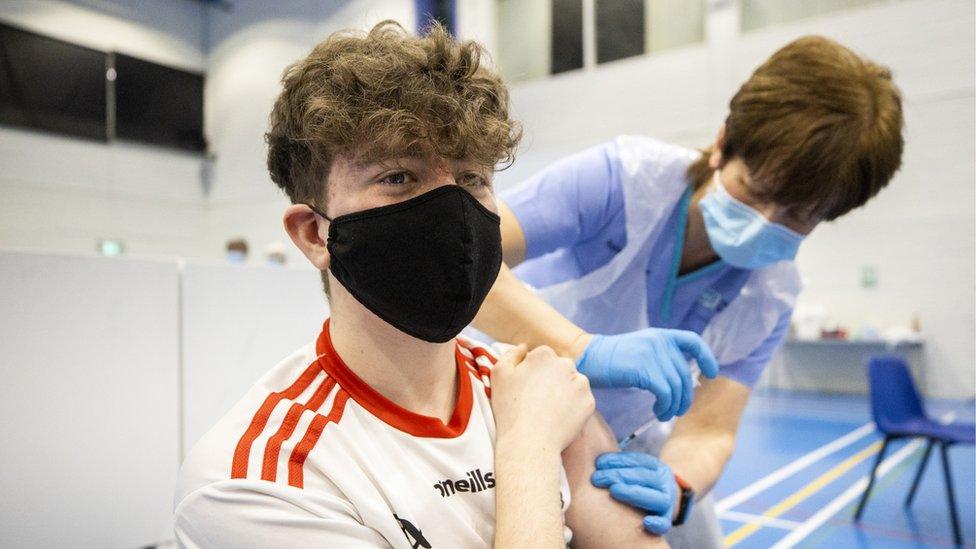
- Published24 April 2021
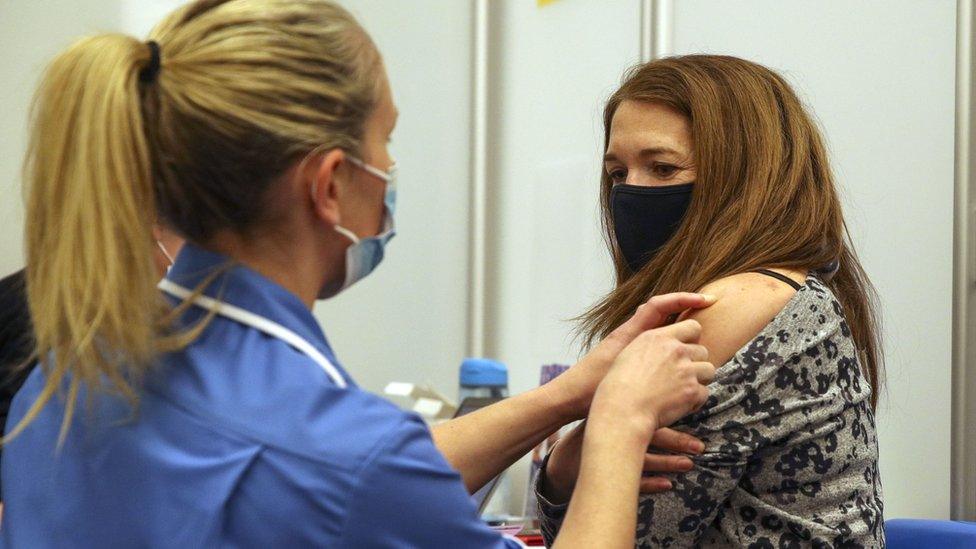
- Published23 April 2021
